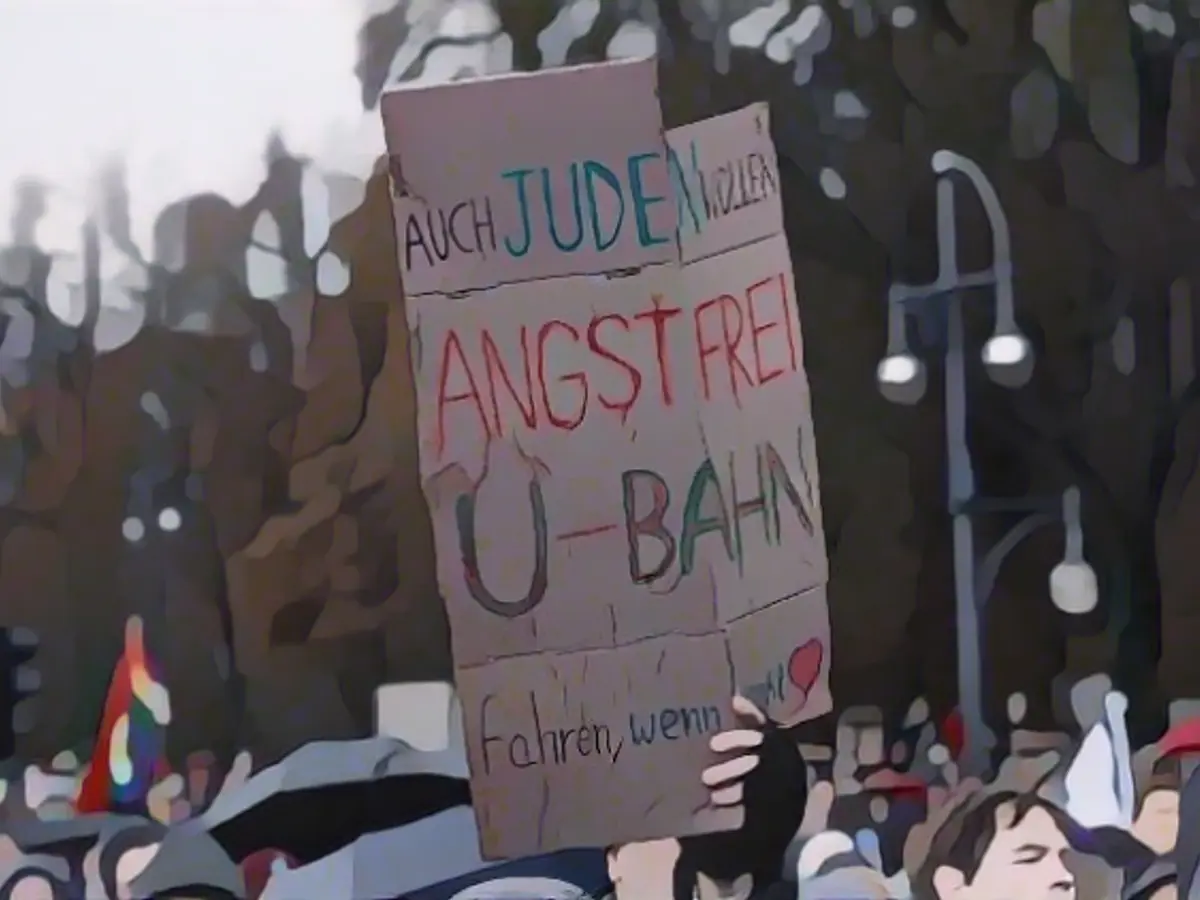Anti-Semitism Trends in Modern Germany: A Shift in Attitudes and Increased Incidents
Recent surveys show a decline in overtly antisemitic views among Germans, but it's essential not to dismiss the ongoing issue, as daily incidents still occur—an average of 29 per day. This revealing data comes from a study conducted by the Forsa Institute for German magazine "Stern".
While the proportion of individuals holding latent antisemitic attitudes has dropped from 23% in 2003 to 7% in 2023, a worrying factor arises: a large segment of society believes that antisemitic sentiments have become more prevalent lately. Half of the respondents indicated a negative shift in attitudes towards Jews, compared to only 30% in 2003.
Now, delving into the controversial topics that mainstream societies shun, let’s examine some of the most contentious statements related to antisemitism:
- Belief that Jews wield too much global power: 14% of respondents agreed with this statement, down from 28% in 2003. The statement that Jews are not entirely innocent due to their behavior also saw a decrease, from 19% to 9%.
- Jews exploiting the Nazi past: 24% of Germans agreed that Jews are currently attempting to capitalize on the Nazi era, while in 2003, this percentage skyrocketed to 38%.
- Closing the books on Jewish persecution under National Socialism: Almost half of the respondents expressed a desire to halt ongoing discussions on this subject, with this number having decreased from 61% in 2003 to 45% in 2023.
Surprisingly, one in four supporters of the Alternative for Germany (AfD) party harbor latent antisemitic views, making them the group with the highest rate of antisemitic attitudes. However, other demographics also have comparatively high levels, such as 50 to 64-year-olds and individuals with a secondary school education.
Despite this decline in public approval for antisemitic sentiments, specialists caution against complacency. Experts at the Federal Criminal Police Office saw a significant surge in antisemitic crimes following the Hamas attack on October 7, 2023. Samuel Salzborn, Berlin’s anti-antisemitism contact, highlighted the radicalization of hardcore antisemitic extremists. He emphasized the importance of standing against these intolerant beliefs to keep them from having a disproportionate influence on discussions in public life.
Taking all these elements into account, the report reveals two sides of this ongoing issue: a decrease in the public endorsement of antisemitic views but an alarming increase in daily antisemitic incidents. This complex situation deserves our attention, and addressing it requires a nuanced and comprehensive approach from all sectors of society.








